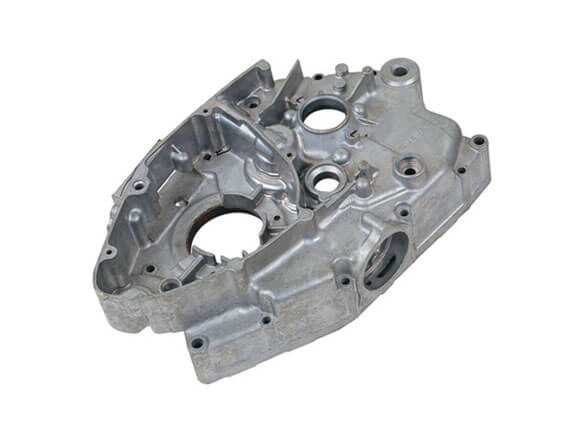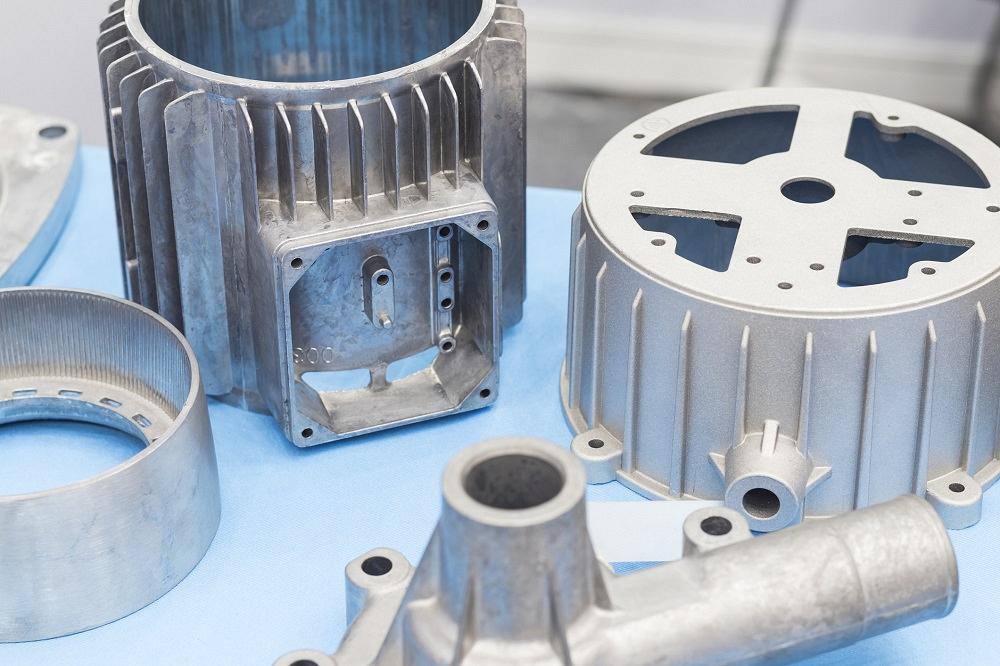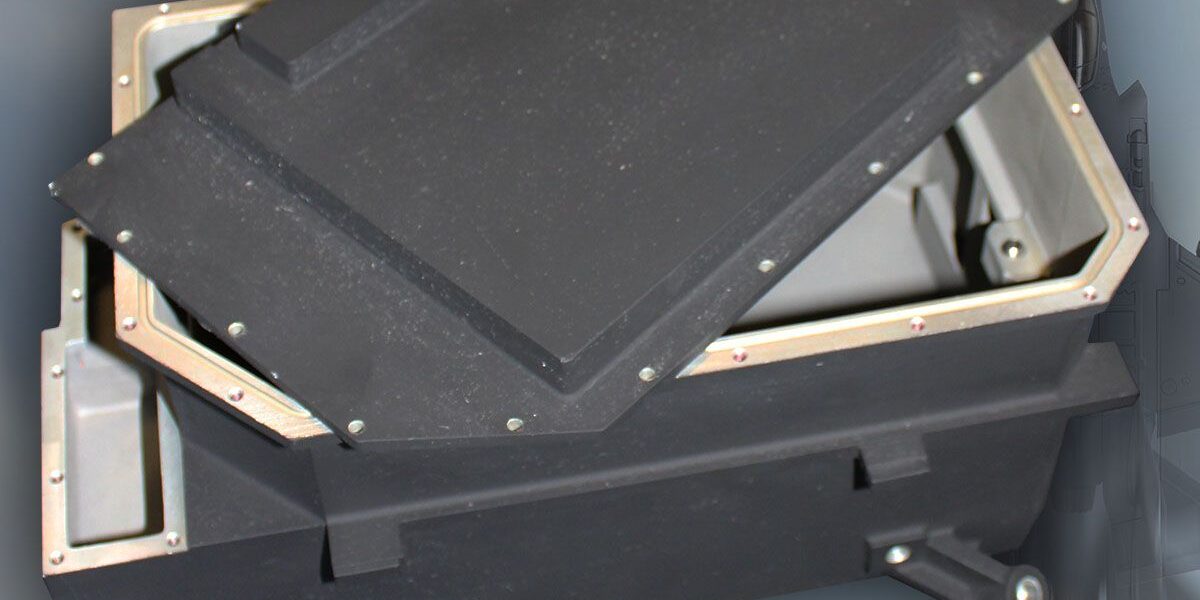The art behind Precision aluminum casting for industrial applications
Discovering the Innovative Procedures Behind Modern Aluminum Shop Procedures
Modern aluminum foundry operations are undergoing considerable change. Automation and AI are reshaping production techniques, boosting both effectiveness and precision. The assimilation of 3D printing is improving mold creation, while sustainability techniques are ending up being extra necessary. Each of these advancements plays a vital duty in redefining the market. However, the implications of these changes prolong beyond simple manufacturing performance. What possibilities and difficulties exist in advance for aluminum shops in this progressing landscape?
The Duty of Automation in Light Weight Aluminum Foundries

In addition, automation adds to improved security requirements within the shop atmosphere. By transferring harmful jobs to equipments, human workers can focus on supervisory duties and quality control, reducing the threat of accidents. On top of that, data analytics stemmed from automated procedures give important insights into functional performance, bring about better decision-making and continual renovation. As the demand for light weight aluminum products expands, the adoption of automation technologies will likely increase, additionally transforming the landscape of light weight aluminum factory operations.
Improvements in Casting Technologies
Recent improvements in casting innovations are changing aluminum foundry procedures. Developments such as 3D printing integration, advanced alloy formulas, and automated procedure optimization are enhancing performance and product high quality. These developments are pivotal in meeting the progressing needs of the industry.
3D Printing Combination
Incorporating 3D printing innovation right into aluminum shop operations has actually revolutionized standard spreading methods, boosting both efficiency and accuracy. This cutting-edge strategy permits the quick production of intricate mold and mildews and cores, considerably minimizing preparations and material waste. By using additive manufacturing, foundries can produce detailed geometries that were difficult or formerly challenging to attain with traditional techniques. The adaptability of 3D printing likewise makes it possible for quick layout alterations, promoting an extra agile production procedure. On top of that, this combination sustains using lightweight frameworks, which is increasingly crucial in markets such as auto and aerospace. As aluminum shops proceed to adopt 3D printing, they position themselves at the center of technological development, driving enhancements in item top quality and operational abilities.
Advanced Alloy Formulations
The development of innovative alloy formulations has significantly improved casting modern technologies in aluminum factory operations. These formulations incorporate different aspects, such as silicon, copper, and magnesium, to enhance mechanical residential or commercial properties and thermal resistance. By tailoring the structure of light weight aluminum alloys, suppliers can accomplish details performance qualities that satisfy the demands of diverse applications, from auto elements to aerospace frameworks. The usage of innovative alloys likewise adds to lowered weight and boosted strength, which are vital consider modern-day design. Additionally, developments in alloy growth allow better fluidness throughout spreading, causing enhanced surface area coatings and reduced issues. Overall, progressed alloy formulations represent a considerable leap forward, placing aluminum factories to meet the developing demands of numerous sectors properly.
Automated Process Optimization
Improvements in casting modern technologies have led the way for automated procedure enhancement in aluminum factory procedures. By integrating advanced software and real-time information analytics, shops can now improve manufacturing procedures and boost quality assurance. Automated systems check variables such as air conditioning, temperature, and stress prices, permitting for immediate modifications that minimize issues and waste. Furthermore, artificial intelligence formulas assess historic efficiency information to predict ideal settings, consequently enhancing efficiency and reducing cycle times. Robotics likewise play a considerable function, handling repeated jobs that boost safety and security and accuracy. In general, these developments not only drive operational effectiveness but likewise make it possible for shops to meet the expanding need for high-grade aluminum components in numerous industries.
Smart Manufacturing and Industry 4.0 Integration
The assimilation of Smart Production and Sector 4.0 within aluminum factories is changing functional efficiency. By leveraging IoT modern technologies, automation, and robotics, shops can maximize manufacturing processes and lower downtime. Additionally, data analytics supplies important insights that enhance decision-making and drive continual renovation.
IoT in Foundry Workflow
As makers progressively accept the Web of Points (IoT), shop operations are experiencing a transformative change towards wise manufacturing and Industry 4.0 integration. aluminum casting. IoT innovations enable real-time data collection and analysis, enhancing decision-making processes and functional efficiency. Sensing units and connected tools keep track of tools performance, product usage, and ecological conditions, permitting for aggressive upkeep and resource optimization. This connectivity fosters a much more agile production environment, where modifications can be made quickly in reaction to market demands. Additionally, IoT assists in boosted traceability and quality assurance, as information from the whole production cycle can be quickly these details accessed and evaluated. Generally, the assimilation of IoT in factory procedures substantially improves performance and drives development in aluminum production processes
Automation and Robotics Assimilation
Automation and robotics assimilation is reinventing light weight aluminum shop operations by enhancing effectiveness and precision. This transformative strategy streamlines processes such as molding, pouring, and finishing, lowering human mistake and raising result consistency. By utilizing sophisticated robotic systems, shops can accomplish greater production rates while keeping stringent top quality standards. Automated systems also enable real-time surveillance and flexible control, enabling for swift adjustments to manufacturing criteria. On top of that, the combination of robotics lessens labor costs and reduces safety dangers associated with hands-on handling of molten metal. As foundries accept wise production concepts inherent in Sector 4.0, the synergy between automation and robotics strengthens their one-upmanship, leading the way for sustainable development and development in the light weight aluminum casting field.
Data Analytics for Effectiveness
Taking advantage of information analytics greatly improves effectiveness within light weight aluminum shop procedures, lining up with wise production and Industry 4.0 concepts. By leveraging real-time information collection and analysis, foundries can keep an eye on manufacturing processes, anticipate equipment failings, and maximize source allowance. This data-driven approach assists in insightful decision-making, making it possible for supervisors to boost and recognize traffic jams operations. Furthermore, predictive analytics empowers shops to expect market demands, thereby minimizing waste and guaranteeing prompt item distribution. Integration of information analytics with IoT devices improves operational presence, fostering a proactive maintenance culture. Eventually, carrying out these advanced logical methods not just increases performance but likewise drives technology, positioning aluminum foundries to fulfill the advancing demands of the sector while keeping one-upmanships in a rapidly transforming landscape.
Sustainable Practices in Aluminum Casting
While Read Full Article the aluminum spreading sector has actually generally faced ecological difficulties, numerous shops are currently embracing sustainable practices to alleviate their effect (aluminum casting). A substantial emphasis has actually gotten on recycling aluminum scrap, which not only lowers waste however likewise preserves power compared to main aluminum production. Cutting-edge melting technologies, such as induction furnaces, boost energy efficiency and reduced greenhouse gas emissions
Furthermore, factories are implementing closed-loop water systems to minimize water usage and decrease thermal air pollution. The usage of green binders in mold-making procedures is gaining traction, more reducing dangerous exhausts.
Some facilities are spending in eco-friendly energy sources to power procedures, lining up with international sustainability objectives. By incorporating these techniques, the light weight aluminum casting sector is advancing towards a more ecologically liable future, demonstrating that financial development can exist side-by-side with ecological stewardship - Precision aluminum casting. These initiatives reflect a commitment to sustainability and the significance of environmental liability in manufacturing
Quality Control Innovations
As the light weight aluminum casting sector advancements towards sustainability, the relevance of quality assurance innovations ends up being increasingly noticeable. Modern aluminum foundries are taking on advanced modern technologies to improve their quality control processes. Techniques such as real-time next monitoring and information analytics allow manufacturers to detect defects and inconsistencies early in the production cycle. Implementing automated inspection systems geared up with equipment learning formulas assurances that products fulfill strict top quality standards while reducing human error.
The assimilation of non-destructive screening techniques, such as ultrasonic and radiographic examinations, gives deeper understandings into the honesty of castings without harming the product. These technologies not just enhance product integrity however also minimize waste, aligning with sustainability goals. On top of that, the adoption of standard high quality frameworks aids streamline procedures across various shops, ensuring consistency in result. Jointly, these improvements are reshaping quality assurance, promoting a culture of quality within the light weight aluminum casting sector.
Future Patterns in Light Weight Aluminum Factory Operations
What innovations exist ahead for aluminum shop operations? The future of aluminum factories is positioned for makeover through improvements in automation, expert system, and lasting methods. The combination of robotics and automated systems is anticipated to improve performance and accuracy in the spreading procedures, lowering human error and labor costs. In addition, AI-driven analytics will certainly enable real-time surveillance and anticipating maintenance, enhancing operational efficiency and decreasing downtime.
Sustainability remains a centerpiece, with foundries progressively taking on environmentally friendly practices, such as using recycled light weight aluminum and developing low-emission melting technologies. Developments in 3D printing are likewise prepared for to change mold-making, permitting intricate geometries and minimized product waste. As the sector welcomes digitalization, data-driven decision-making will certainly end up being essential, enabling shops to respond swiftly to market needs. Collectively, these fads guarantee to redefine aluminum factory procedures, making them more efficient, sustainable, and versatile to future challenges.

Frequently Asked Inquiries
What Precaution Are Implemented in Aluminum Foundry Workflow?
Light weight aluminum foundry operations apply various precaution, consisting of personal safety devices, ventilation systems to manage fumes, normal security training, emergency situation action plans, and rigorous monitoring of temperature level and tools to protect against accidents and warranty worker security.
Exactly How Do Factories Take Care Of Labor Force Educating for New Technologies?

What Materials Are Generally Reused in Aluminum Foundries?
Light weight aluminum factories typically reuse scrap light weight aluminum, including post-consumer items like drink cans, vehicle components, and building and construction products. This recycling procedure minimizes waste and preserves resources, adding to a much more sustainable light weight aluminum manufacturing sector.
Exactly How Does Light Weight Aluminum Spreading Influence the Environment?
Light weight aluminum casting effects the setting through energy-intensive processes, greenhouse gas emissions, and possible local pollution. Innovations in recycling and sustainable techniques can alleviate these effects, promoting a more green approach to light weight aluminum production.
What Are the Typical Lead Times for Aluminum Spreading Projects?
Typical preparation for light weight aluminum spreading tasks vary significantly, typically varying from two to 6 weeks. Elements influencing these timelines include complexity, order dimension, and material accessibility, influencing general production routines in factory operations.
Automation increasingly plays a crucial function in aluminum shops, enhancing performance and accuracy in the manufacturing process. Advancements in casting modern technologies have paved the means for automated process improvement in aluminum foundry procedures. Taking advantage of information analytics significantly boosts performance within aluminum shop operations, straightening with clever manufacturing and Market 4.0 concepts. A significant focus has actually been on reusing light weight aluminum scrap, which not just reduces waste yet likewise conserves power contrasted to key light weight aluminum manufacturing. Light weight aluminum foundries frequently recycle scrap light weight aluminum, consisting of post-consumer products like beverage cans, automobile components, and building materials.